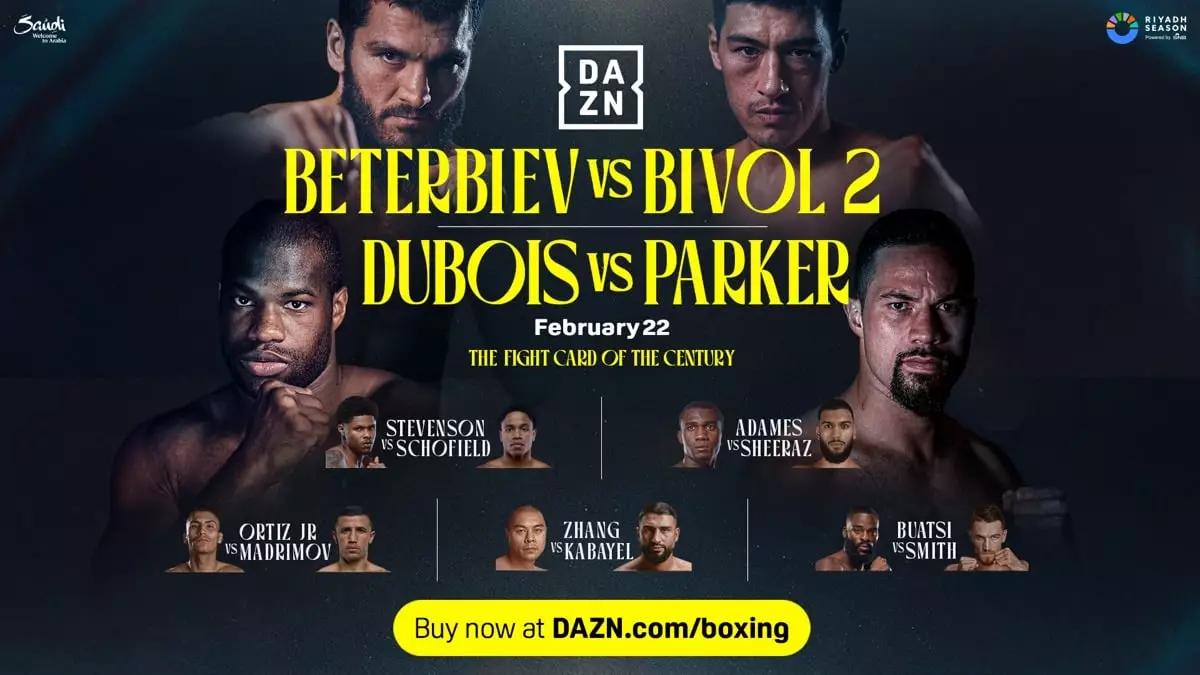Dmitry Bivol approaches his rematch with Artur Beterbiev on February 22nd in Riyadh with a renewed sense of urgency and determination. Coming off a loss in their previous encounter on October 12th, Bivol is not merely seeking redemption; he is recalibrating his entire approach to the fight. He has explicitly stated his need to “throw more punches,” a clear acknowledgment of a past strategy that proved insufficient against the formidable undisputed light heavyweight champion. For Bivol, this rematch represents not just an opportunity to reclaim his standing in the ring but also a chance to showcase his evolution as a fighter.
Bivol recognizes that a more aggressive approach comes with its own risks. Boxing, especially at the elite level, is an intricate dance where offense and defense must be balanced flawlessly. By committing to a higher volume of punches, Bivol risks leaving himself vulnerable to Beterbiev’s devastating power. The analysis of their prior bout reveals that Bivol’s tactic of constant movement and avoidance worked to some extent, yet ultimately left him bruised, showcasing the toll of Beterbiev’s heavy shots. Transitioning from a defensive style to one that incorporates more offense could redefine the dynamic of their matchup, but it also requires Bivol to withstand incoming pressure in a way he previously struggled to manage.
In his reflections, Bivol has expressed dissatisfaction with how close the first fight was. His words reveal a fighter haunted by the feeling that he did not deliver his best performance. Bivol’s frank admission marks a significant moment in the psychology of a boxer who understands that growth often stems from discomfort. This self-criticism coupled with increased preparation emphasizes Bivol’s ambition; he aims not only for victory but for a confirmation of his skill and resolve. His insistence that “if I do my job much better,” there will be no doubts or excuses, reflects a mentality that seeks accountability and improvement—qualities that champions often possess.
Furthermore, Bivol acknowledges the importance of mutual knowledge between fighters. Beterbiev, having battled Bivol previously, will come into the rematch with insights gleaned from their initial fight. Bivol’s focus on adapting and improving suggests a tactical awareness that could be pivotal. It’s clear he understands that both fighters will attempt to exploit each other’s weaknesses, and his recognition of this dynamic adds another layer of complexity to the upcoming fight. He admits that Beterbiev may adopt a more aggressive stance, and if that is the case, Bivol will need to not only throw more punches but also bolster his defense to manage Beterbiev’s onslaught.
As the much-anticipated rematch approaches, Bivol’s determination to alter his approach promises an outcome that could be markedly different from the previous clash. While the potential for Beterbiev’s powerful counterattacks looms large, Bivol’s resolve to be more active and engaging in the ring could lead to a thrilling confrontation. This is not merely a fight for victory; it is an opportunity for Bivol to redefine his legacy in the sport. The upcoming bout will undoubtedly be a testament to both fighters’ skills, heart, and the essence of boxing itself: the pursuit of greatness amidst adversity.

